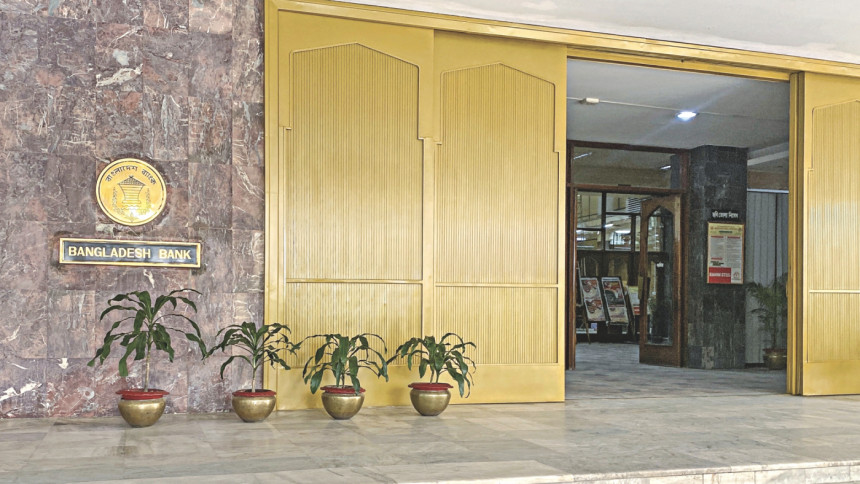Private sector’s short-term foreign debt edges down

The private sector's short-term foreign debt fell 1.43 percent to $11.79 billion in December from a month ago as taking loans from the domestic source has turned out to be more attractive than borrowing from abroad, Bangladesh Bank figures showed.
The borrowing stood at $11.97 billion in November.
Since the start of 2023, private-sector borrowing has decreased almost every month as the interest rate in the international market has climbed, discouraging private-sector borrowers.
In January 2023, the debt stood at $15.58 billion.
"In Bangladesh, the interest rate is much lower than that for availing foreign loans," said Ahsan H Mansur, executive director of the Policy Research Institute of Bangladesh.
Previously, the interest rate for foreign loans was 1 percent to 2 percent. But it has now jumped to 8 percent to 9 percent, he said.
On the other hand, the interest rate in Bangladesh was 7 percent to 8 percent before June last year since the central bank maintained a 9 percent lending rate ceiling before it was scrapped in July.
The lending rate has since increased to 10 percent to 11 percent amid the lingering liquidity crunch, he added.
"As a result, the margin has decreased," the economist said, adding that borrowing from the domestic market is more attractive.
Another reason for the fall in loans from the external sector could be the huge capital losses faced by borrowers due to the depreciation of the taka against the US dollar. The local currency has lost its value by about 30 percent in the past two years.
"In such a situation, a borrower will not show interest in availing loans from foreign sources. Rather, the borrower will be more interested in repaying previous debts," said the former economist of the International Monetary Fund.
According to Bangladesh Bank data, borrowers have repaid $2 billion to $3 billion every month against their short-term foreign loans since January 2023.
They repaid $2.24 billion in December and $2.51 billion in November.
Bangladesh used to borrow $8 billion to $9 billion each month in the form of buyer's credit, which has reduced gradually.
Buyer's credit is a short-term loan facility extended to an importer by an overseas lender such as a bank or financial institution to finance the purchase of capital goods, services, and other big-ticket items.
In December, buyer's credit of private sector borrowers stood at $6.24 billion compared to $6.47 billion in November.
Another reason behind the decrease in short-term foreign borrowing could be the ongoing dollar crisis in Bangladesh, Mansur added.
"Foreign lenders are cautious when giving out loans to Bangladesh's private sector as they are apprehensive about getting their money back."
That repayments are higher than fresh borrowing is detrimental to the country's foreign exchange reserves, said central bank officials.
The reserves stood at $19.94 billion last week, down from $40.7 billion in August 2021, data from the Bangladesh Bank and the IMF showed.


 For all latest news, follow The Daily Star's Google News channel.
For all latest news, follow The Daily Star's Google News channel. 



Comments